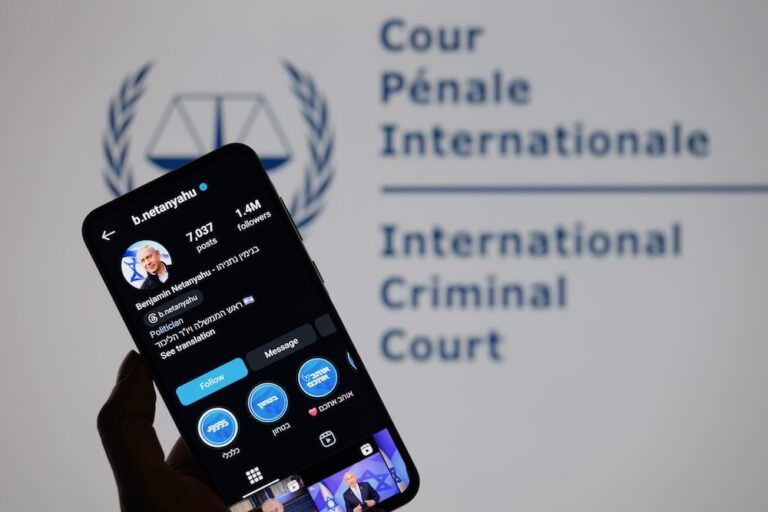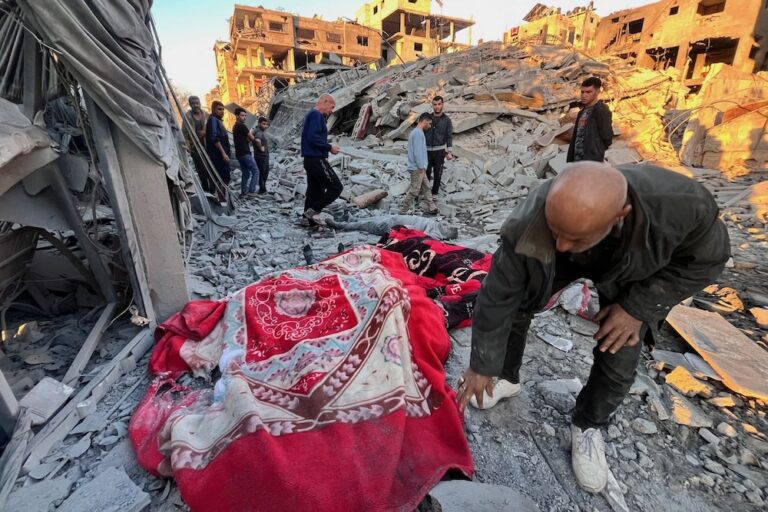(RSF/IFEX) – In a letter to Israeli Chief of Staff Shaul Moffaz, RSF protested the ban imposed on journalists on 13 February 2002. Journalists were barred from covering Israeli army operations in the Gaza Strip on that day. “It is unacceptable that Israeli authorities prevent journalists from doing their jobs,” stated RSF Secretary-General Robert Ménard. […]
(RSF/IFEX) – In a letter to Israeli Chief of Staff Shaul Moffaz, RSF protested the ban imposed on journalists on 13 February 2002. Journalists were barred from covering Israeli army operations in the Gaza Strip on that day. “It is unacceptable that Israeli authorities prevent journalists from doing their jobs,” stated RSF Secretary-General Robert Ménard. “We ask that you allow the press to freely cover events related to the army’s operations.”
According to information received by RSF, the Israeli security forces prevented journalists from travelling to the Gaza Strip on 13 February. Numerous television crews were blocked at the Eretz border checkpoint. Starting in the morning, Israeli tanks and bulldozers entered Beit Lahya, Beit Hannun and Deir al-Balah in the Gaza Strip. Only a pool of written-press journalists were allowed to enter the zone.
On 25 October 2001, the Israeli army barred journalists from entering the village of Beit Rima, north-west of Ramallah, where the army had begun a military operation during the night of 23 to 24 October (see IFEX alerts of 26 and 24 October 2001). Forty-eight hours later, the press was still not authorised to enter the village, where several people were killed. Army Spokesman Olivier Rafowicz said that “security reasons and operational choices” justified the measure, which was also applied to ambulances.


